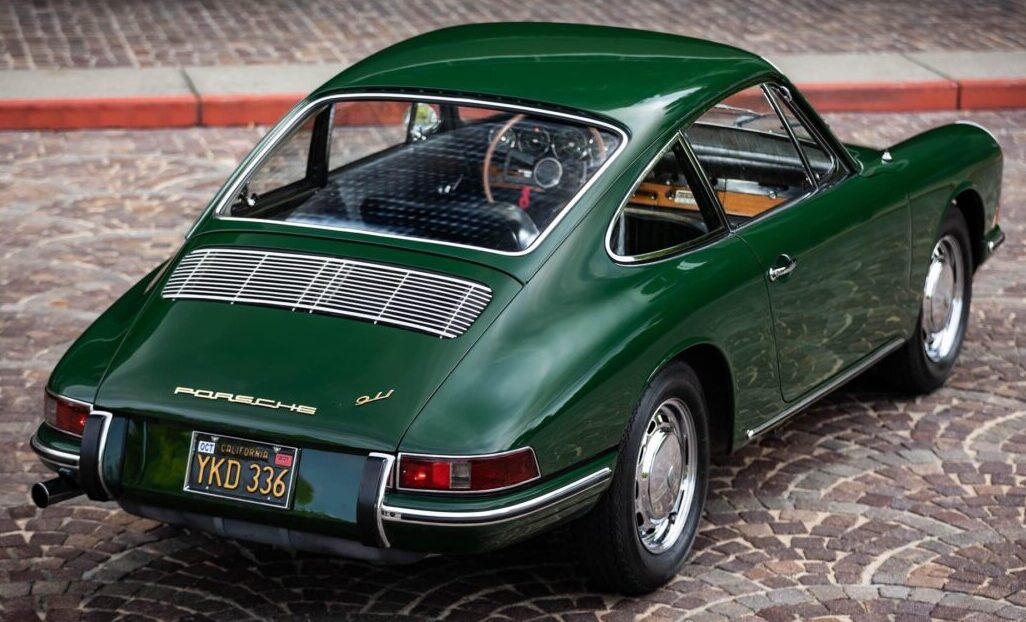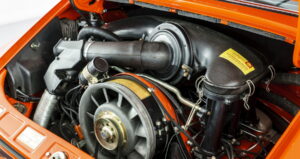Porsche 911: Depreciation trends and market insights for 2024 buyers
1. So You’re thinking about buying a 911 in 2024? Understanding depreciation trends
2. The current market overview
3. Market dynamics and price drivers
4. Depreciation trends by generation
5. Market insights and forecasts
7. Conclusion
So You’re thinking about buying a 911 in 2024? Understanding depreciation trends
The allure of the Porsche 911 is undeniable. If you’re considering buying one this year, or if you’re already a proud owner, understanding the current market dynamics and depreciation trends is crucial. In this post, we’ll dissect the state of the market, examine depreciation trends, and forecast future values for the different 911 generations.
The current market overview
As of May 2024, the US market lists 1009 clean-title Porsche 911s for sale. This represents a 24% decrease from three months ago, indicating a tightening used car supply. Despite the shrinking supply, there is a wide price range for the 911s:
- 996 Models: Starting at around $25,000, these high-mileage early 2000s models are the most affordable entry point.
- 997 Models: Prices for a 997.1 begin around $49,400, approximately $10,000 more than the later 996.2 models.
- 997.2 Models: These often regarded as the best modern 911s, offering options like PDK transmissions while maintaining hydraulic steering, are priced similarly to early 991 models (2012-2013).
The 991.1 and 991.2 models show significant price differences, with a noticeable premium of over $28,000 for the latter. Similarly, the jump to the 992 models is substantial, with prices reaching up to $220,000.
Market dynamics and price drivers
Economic principles of supply and demand naturally govern the market. Despite a drop in supply, prices may not necessarily rise unless demand outpaces it. During the second part of the pandemic, for instance, prices surged even as supply increased, driven by heightened demand. The advertised time (how long a car is listed for sale) can be a good indicator of market heat. Shorter advertised times often precede price increases, as seen during the pandemic. Conversely, longer advertised times typically signal price reductions.
Depreciation trends by generation
992 Models
The newest generation, the 992, has experienced significant depreciation:
- Base Models: Down 9% (or $12,000) from last year.
- S Models: Down 14% (or $22,000).
991.2 Models
While newer cars tend to lose more, the 991.2 has seen similar patterns:
- Base Models: Down 10% (or $10,000).
- S Models: Down 15% (or $18,000).
991.1 Models
Depreciation is slightly less severe:
- Base Models: Down 7.8%.
- S Models: Down 9.8%.
997 Models
Aged but still desirable, the 997 models show varied depreciation:
- 997.1 Base Models: Down only 3.5%, a notably low rate due to recent price increases.
- 997.1 S Models: Down 13.8%.
- 997.2 Models: Down 8%, though these figures are less reliable due to smaller market sizes.
996 Models
Older models show the most stability:
- 996.1 Base Models: Down only 3.5%.
- 996.2 Models: Down 11%.
- 996.2 S Models: Down 6.5%.
Market insights and forecasts
The most recent quarter shows a significant decrease in advertised times, hinting at increased market scarcity and potentially slower depreciation. This is consistent across many car markets, suggesting a seasonal effect rather than a market bottom. However, the depreciation trends differ notably between generations, with newer models like the 991.2 and 992 experiencing higher rates compared to older models.
Key takeaways for Buyers
If you’re choosing between a 991.1 and a 991.2, note that newer models have lost up to 14% in the past year, while older models have seen much smaller drops. This pattern extends to the 997 and 996 models, which have shown remarkable price stability, particularly for base models.
While the general trend points towards continued depreciation, the rate varies significantly across generations. The recent increase in scarcity might temporarily slow depreciation, but it’s unlikely to signal a market bottom. If you’re buying now, expect some level of depreciation aligned with prevailing trends.
Conclusion
The Porsche 911 market remains dynamic, with depreciation trends heavily influenced by generational differences and market conditions. Understanding these trends can help you make an informed decision whether you’re buying your first 911 or adding to your collection. Stay updated, analyze the market, and enjoy the thrilling ride that only a 911 can offer.
Inspired by the analysis of our friend @fourwheeltrader. Make sure you check his other videos https://www.youtube.com/@fourwheeltrader/featured.
Are you already a proud owner of a Porsche 911? If so, check out our selection of parts for this car at the following link:
https://octoclassic.com/product-category/porsche/911
Photos sources: reddit.com, total911.com, porsche.com










